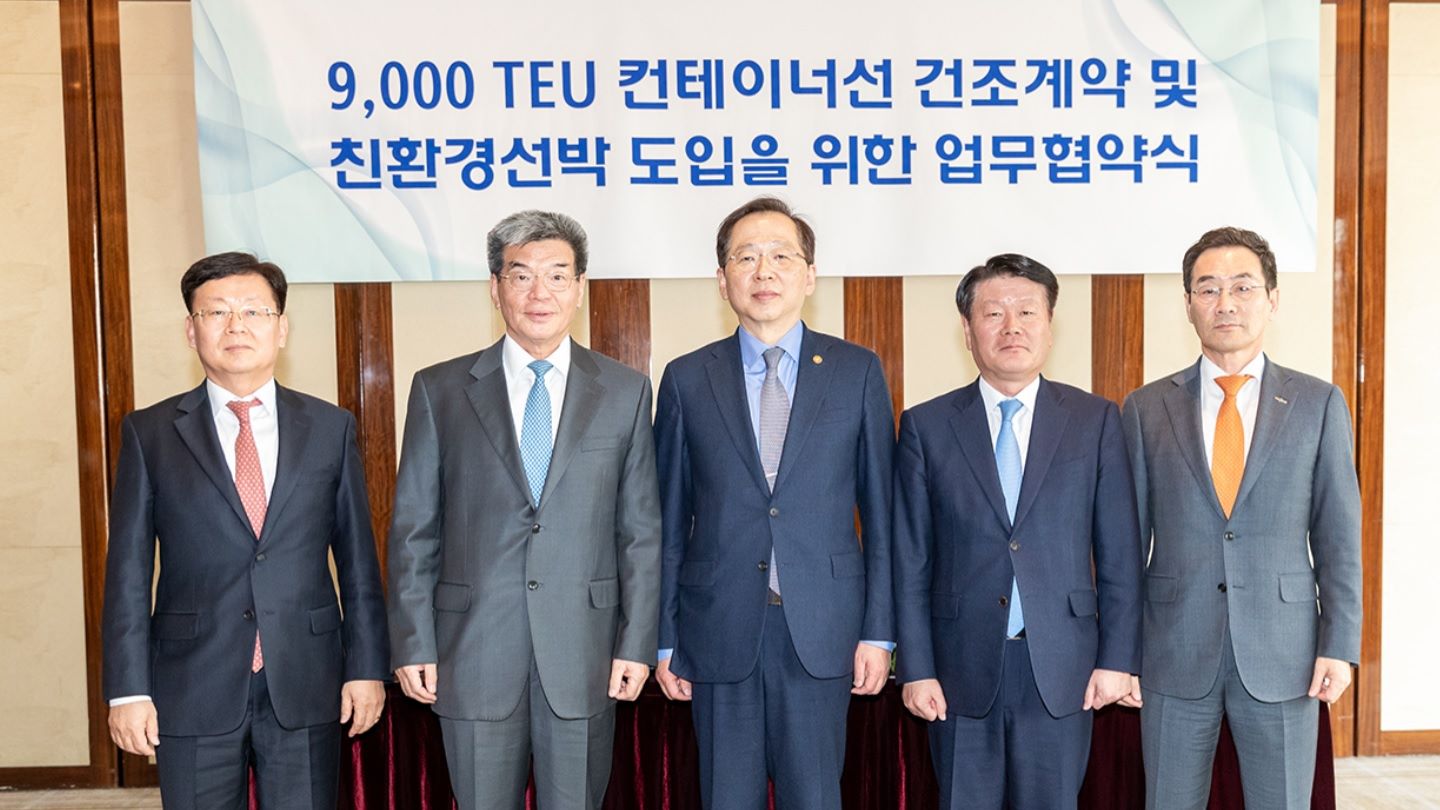
Samho Heavy Industries (HSHI) and HJ Shipbuilding and Construction (HJSC) have received $1.12bn worth of newbuilding contracts from South Korean container shipping company HMM for nine methanol-powered containerships.
Under the contracts, HSHI will construct seven vessels, while HJSC will construct two. The 9,000 twenty-foot equivalent unit (TEU) vessels will feature methanol dual-fuel engines.
The order of methanol-powered containerships is said to be HMM’s ‘initial step toward expanding its eco-friendly fleet using alternative fuels’.
HMM will use the new vessels on the Asia-North/Latin America trade lanes as well as the Asia-India routes.
Green shipping corridors between Busan, Korea, and major ports in the US are also expected to become one of the routes that the new ships will run on, stated HMM.
The new box ships are expected to be delivered between 2025 and 2026.
How well do you really know your competitors?
Access the most comprehensive Company Profiles on the market, powered by GlobalData. Save hours of research. Gain competitive edge.

Thank you!
Your download email will arrive shortly
Not ready to buy yet? Download a free sample
We are confident about the unique quality of our Company Profiles. However, we want you to make the most beneficial decision for your business, so we offer a free sample that you can download by submitting the below form
By GlobalDataFurthermore, HMM has reached a memorandum of understanding (MoU) with five fuel suppliers for the delivery of methanol to the new ships.
The fuel suppliers include Proman, PTTEP, European Energy and Hyundai Corporation.
HMM plans to carry out feasibility studies with each of the partners to support buying various types of methanol for its main bunkering ports. Following these studies, the company will also work on the production of green methanol as part of developing carbon-neutral fuels.
HMM president and CEO Kim Kyung Bae said: “We will continue to drive efforts to support the global community’s broader transition to carbon neutrality while at the same time strengthening our fundamental level of future capability in the face of increasingly fierce competition in the global market.”
The South Korean shipping firm aims to attain net-zero carbon emissions across its fleet by 2050.


